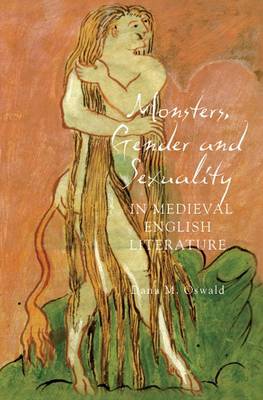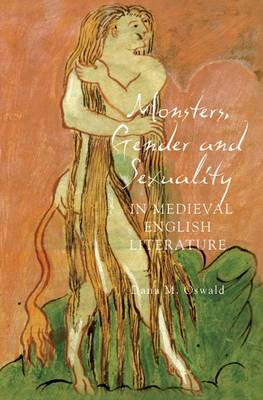
- Afhalen na 1 uur in een winkel met voorraad
- Gratis thuislevering in België vanaf € 30
- Ruim aanbod met 7 miljoen producten
- Afhalen na 1 uur in een winkel met voorraad
- Gratis thuislevering in België vanaf € 30
- Ruim aanbod met 7 miljoen producten
Zoeken
Omschrijving
Monsters abound in Old and Middle English literature, from Grendel and his mother in Beowulf to those found in medieval romances such as Sir Gowther. Through a close examination of the way in which their bodies are sexed and gendered, and drawing from postmodern theories of gender, identity, and subjectivity, this book interrogates medieval notions of the body and the boundaries of human identity. Case studies of Wonders of the East, Beowulf, Mandeville's Travels, the Alliterative Morte Arthure, and Sir Gowther reveal a shift in attitudes toward the gendered and sexed body, and thus toward identity, between the two periods: while Old English authors and artists respond to the threat of the gendered, monstrous form by erasing it, Middle English writers allow transgressive and monstrous bodies to transform and therefore integrate into society. This metamorphosis enables redemption for some monsters, while other monstrous bodies become dangerously flexible and invisible, threatening the communities they infiltrate. These changing cultural reactions to monstrous bodies demonstrate the precarious relationship between body and identity in medieval literature. Dana M. Oswald is Assistant Professor of English, University of Wisconsin-Parkside.
Specificaties
Betrokkenen
- Auteur(s):
- Uitgeverij:
Inhoud
- Aantal bladzijden:
- 236
- Taal:
- Engels
- Reeks:
- Reeksnummer:
- nr. 5
Eigenschappen
- Productcode (EAN):
- 9781843842323
- Verschijningsdatum:
- 16/09/2010
- Uitvoering:
- Hardcover
- Formaat:
- Genaaid
- Afmetingen:
- 157 mm x 234 mm
- Gewicht:
- 703 g

Alleen bij Standaard Boekhandel
+ 354 punten op je klantenkaart van Standaard Boekhandel
Beoordelingen
We publiceren alleen reviews die voldoen aan de voorwaarden voor reviews. Bekijk onze voorwaarden voor reviews.







